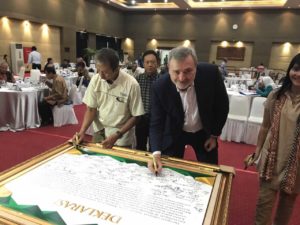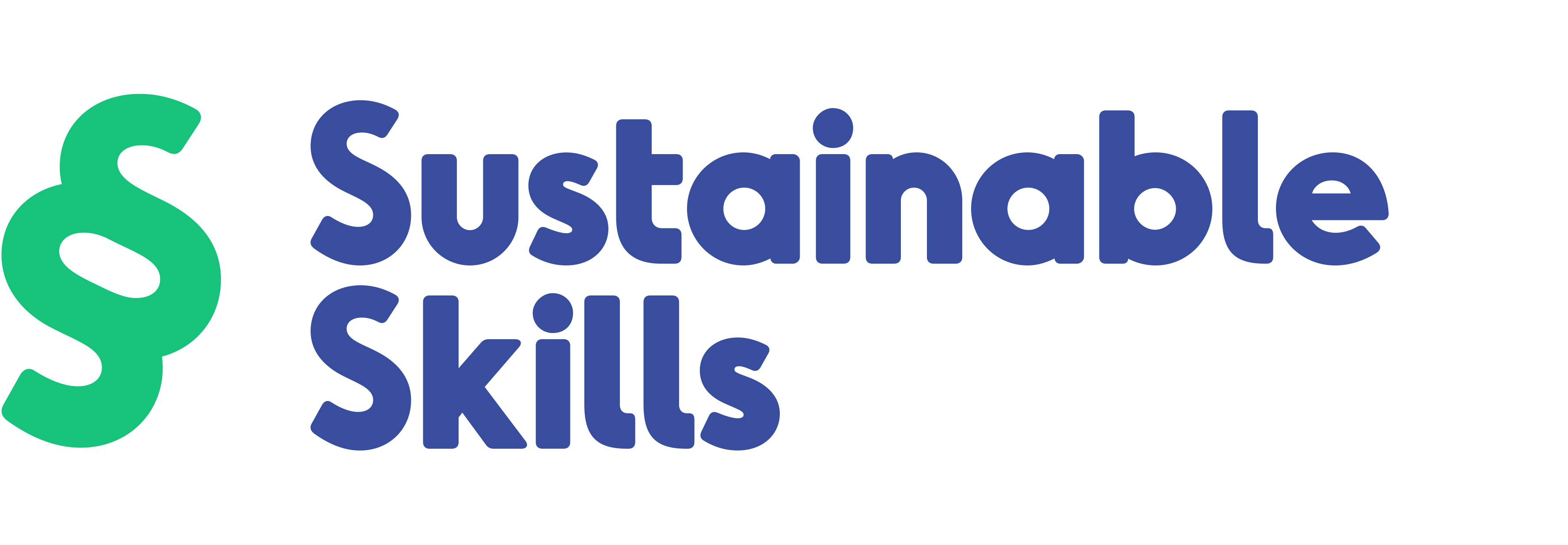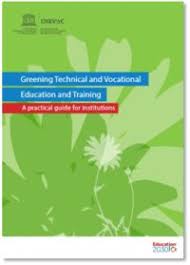
Nigel Carpenter, Sustainable Skills CEO, signing the declaration committing to implement an industry-led system. Jakarta, 14 November 2017.
On 14 November I had the pleasure of speaking at the Rembug Nasional seminar organised in Jakarta by IINC – The Indonesian Institute for National Competence, a not-for-profit organisation appointed to build the National Competency System (SKN) or “Siskomnas”. The seminar focussed on how to improve the quality and competitiveness of Indonesia’s human resources to increase the country’s productivity and help bring more of the population out of poverty.
There were speakers from BNSP, the Indonesian Professional Certifications Authority, Ministries of Manpower, Industry, and Bappenas, the central government institution responsible for formulating national development planning and budgeting, as well as for international development cooperation. Sustainable Skills was the only foreign organisation invited to attend the seminar, positioning our team as a well regarded advisor able to support Indonesia to meet its skills needs. I was invited by Pak Abdul Wahab Bangkona, Special Advisor for International Affairs of the Indonesian Ministry of Manpower, to deliver a speech about how an industry-led TVET system can help improve educational outcomes and drive productivity in Indonesia. At the end of the seminar I had the privilege to sign a declaration committing to implement an industry-led TVET system in Indonesia.
This month our Chair of the Board, Michael Gill, travelled to Myanmar to strengthen our partnership with local institutions. The Government recently released the Myanmar’s National Education Strategy Plan, which gives high priority to vocational education, reflecting the urgent need to improve the employment prospects of younger people and the gap in skills available to meet the nation’s needs. As Myanmar implements its strategy for education, Sustainable Skills aims to play a number of roles supporting the execution of the plan and assisting with projects that increase the quality and supply of education and training places.
The project in Uganda funded by the World Bank to address skills imbalances and shortages in the Country is progressing. Our team of exceptionally-qualified local and international TVET experts is currently designing a model of due diligence and capacity assessments to ensure that all material facts relevant to the funding decision have been revealed, and that all the organisations involved in the project are honest, reliable, and fully capable of executing their responsibilities under the grant agreements.
Since 23 November, Ben Rawlings is no longer working with Sustainable Skills. I would like to thank Ben for his contribution to the organisation over the past four years and particularly during the transition from SkillsDMC to Sustainable Skills. We wish Ben every success in life and in his future endeavors. We have now appointed Luke Behncke as the new Director International Development Services, who will start working with Sustainable Skills on the 4th of December. Luke has over 20 years’ experience in education and business development with a demonstrated history of working in vocational education and training across all industries in domestic and international markets, which will make him a valuable asset to Sustainable Skills. I am pleased to welcome Luke to the team and we look forward to working with him.


